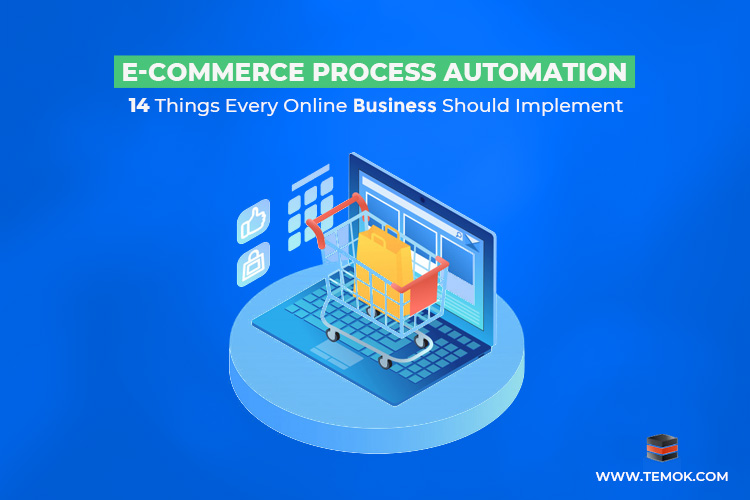Meta Description:
Discover the numerous benefits of incorporating ecommerce automation into your business operations. This comprehensive article outlines how automation can streamline processes, boost efficiency, and enhance your overall success. Read on to learn more about the advantages and frequently asked questions about ecommerce automation.
Introduction
In today’s rapidly evolving digital landscape, ecommerce businesses must constantly innovate and adapt to stay competitive. One significant innovation that has gained prominence is ecommerce automation. This technology-driven approach is revolutionizing the way online businesses operate, offering a wide range of benefits that can significantly impact efficiency, profitability, and customer satisfaction.
This article explores the advantages of implementing ecommerce automation in your business, providing insights into how it can transform your operations, streamline processes, and drive success. Additionally, we’ll address some common questions related to ecommerce automation to help you better understand its potential.
The Benefits of Ecommerce Automation
Enhanced Efficiency
Ecommerce automation simplifies routine tasks and processes, reducing the need for manual intervention. This leads to faster order processing, inventory management, and customer support, allowing your team to focus on more strategic activities. By automating repetitive tasks like data entry, invoicing, and order tracking, you can significantly enhance operational efficiency.
Improved Customer Experience
Automation can enhance the customer experience in several ways. Automated email marketing campaigns can provide personalized product recommendations, order updates, and post-purchase follow-ups. Chatbots and virtual assistants can offer immediate responses to customer inquiries, ensuring 24/7 support. These personalized interactions lead to higher customer satisfaction and increased loyalty.
Inventory Management
Keeping track of inventory levels can be a daunting task for ecommerce businesses. Automation helps maintain accurate inventory records, triggering alerts when stock levels are low. This prevents overselling and stockouts, ensuring that you always have the right products in stock to meet customer demands.
Data Analysis and Insights
Ecommerce automation tools can collect and analyze vast amounts of data, providing valuable insights into customer behavior, purchasing trends, and website performance. This data-driven approach enables you to make informed decisions, refine your marketing strategies, and optimize your product offerings.
Cost Reduction
Automating routine tasks reduces the need for manual labor, saving both time and money. Fewer errors in order processing and inventory management also lead to cost savings. Additionally, targeted marketing campaigns driven by automation can yield higher returns on investment (ROI) compared to traditional marketing efforts.
Scalability
As your ecommerce business grows, manual processes can become overwhelming. Ecommerce automation scales with your business, effortlessly handling increased order volumes, customer inquiries, and data analysis. This scalability ensures that you can meet the demands of a growing customer base without compromising efficiency.
Conclusion
Incorporating ecommerce automation into your business operations can be a game-changer. It streamlines processes, enhances customer experiences, provides valuable data insights, and ultimately contributes to your business’s growth and profitability. By embracing automation, you position your business for long-term success in the competitive world of ecommerce.
FAQs (Frequently Asked Questions)
Q1: How do I get started with ecommerce automation for my business?
Getting started with ecommerce automation involves several steps. First, identify the tasks and processes that can be automated, such as order processing, email marketing, or inventory management. Next, choose the right automation tools or software for your specific needs. Finally, implement and integrate these tools into your existing systems, ensuring they work seamlessly to improve efficiency.
Q2: Will automation replace human employees in my business?
Ecommerce automation is designed to complement human efforts, not replace them. While automation can handle repetitive tasks and streamline processes, human employees remain essential for tasks that require creativity, critical thinking, and a personal touch, such as customer relationship management and strategic decision-making.
Q3: Is ecommerce automation only suitable for large businesses?
No, ecommerce automation can benefit businesses of all sizes. While larger businesses may have more complex automation needs, smaller businesses can start with basic automation tools to streamline their operations. As your business grows, you can gradually incorporate more advanced automation solutions.
Q4: How can I measure the ROI of ecommerce automation?
Measuring the return on investment for ecommerce automation involves tracking key performance indicators (KPIs) such as increased sales, reduced operational costs, and improved customer satisfaction. By comparing these metrics before and after implementing automation, you can assess the impact and ROI of automation on your business.
Q5: What are some common challenges associated with implementing ecommerce automation?
Challenges may include selecting the right automation tools, ensuring seamless integration with existing systems, and training employees to use the new technology effectively. It’s essential to plan and execute the implementation carefully to overcome these challenges and maximize the benefits of ecommerce automation.
In conclusion, ecommerce automation is a powerful tool that can transform your business by increasing efficiency, improving customer experiences, and reducing costs. Whether you’re a small startup or an established enterprise, exploring and implementing automation solutions can help you stay competitive and thrive in the ever-evolving world of online commerce.





